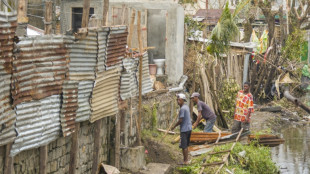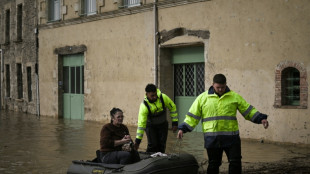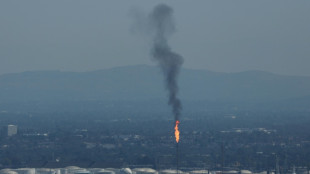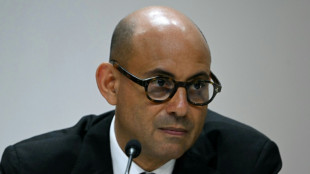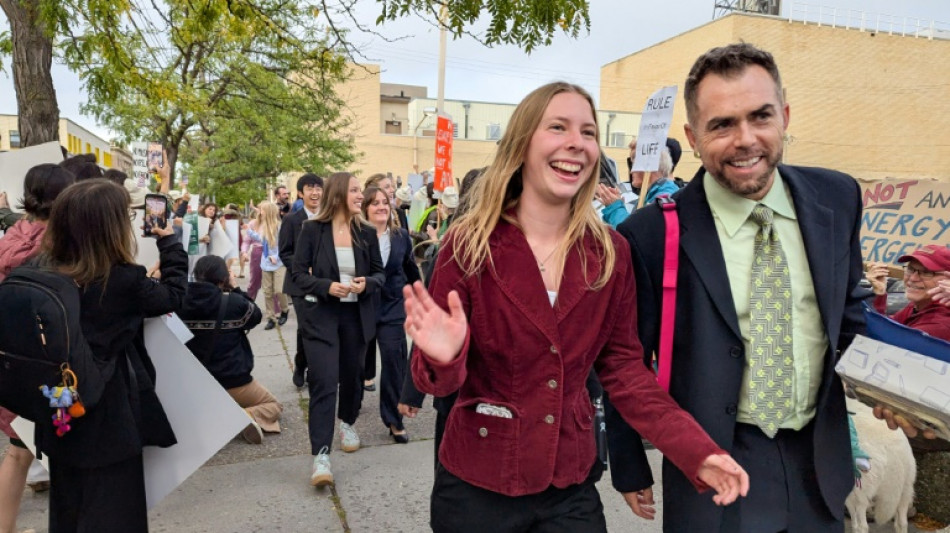

Judge weighs court's powers in Trump climate case
A federal judge overseeing a closely watched climate case on Wednesday pressed the lawyer representing young Americans suing President Donald Trump on whether courts have constitutional authority to rein in his fossil-fuel agenda.
On the second and last day of hearings in Missoula, Montana, attorneys delivered final arguments in Lighthiser v. Trump, part of a growing global wave of lawsuits seeking to force climate action amid political inertia or hostility.
The 22 plaintiffs, represented by the nonprofit Our Children's Trust, want a preliminary injunction against three executive orders they say trample their inalieanable rights by seeking to "unleash" fossil fuel development while sidelining renewable energy.
They also accuse the administration of eroding federal climate science, leaving the public less informed about mounting dangers.
The government counters that the lawsuit is undemocratic and echoes Juliana v. United States, a similar youth-led case that wound through the courts for nearly a decade before the Supreme Court declined to hear an appeal last year -- and should be similarly dismissed.
"This case asks whether the United States Constitution guards against executive abuses of power by executive orders that deprive children and youth of their fundamental rights to life and liberties," said Julia Olson, director of Our Children's Trust and the lead lawyer.
"And now that the court has had the opportunity to hear from some of the youth plaintiffs and their expert witnesses, the answer to that question is clear, and it's yes," she said.
But Judge Dana Christensen, who has issued favorable environmental rulings in the past, pressed Olson on whether precedent tied his hands, and asked if granting relief would require him to oversee every subsequent climate action taken by the executive branch.
"What exactly does that look like?" he asked. "I'd be required to continue to monitor the actions of this administration to determine whether or not they are acting in a manner that contravenes my injunction."
- Decision awaited -
Olson argued the case fundamentally differs from Juliana, which sought to upend decades of federal energy policy, while Lighthiser targets only three orders. She urged the court to take inspiration from Brown v. Board of Education, the 1954 ruling that dismantled racial segregation in schools.
Government attorney Michael Sawyer questioned whether the plaintiffs' own choices undermined their claims of injury, pointing to the flights college student Avery McRae takes from her home state Oregon to Florida.
"If she's injured by every additional ton of emissions, why are those emissions allowed to proceed," Sawyer said, "but the emissions that put dinner on the table of a coal miner's family not allowed?"
The fate of the case -- whether it moves toward trial following a preliminary injunction or is tossed out entirely -- may not be clear for weeks or longer.
Michael Gerrard, an environmental law professor at Columbia Law School, told AFP the plaintiffs had made "a strong factual case about the causes and dangers of climate change."
But he added: "It would be plowing new ground for a court to say that there is a substantive due process right under the US Constitution to a stable climate system."
- 'Shouldn't have to miss school' -
Throughout the hearings, plaintiffs presented experts and firsthand accounts of intensifying heat and ever more destructive climate disasters. The government called no witnesses of its own.
Lori Byron, a pediatrician and co-author of government reports, testified children are "uniquely and disproportionately" harmed by climate change because of their developing bodies and dependence on adults.
Energy economist Geoffrey Heal of Columbia University rejected the administration's claim that the country faces an "energy emergency," the legal justification for Trump's orders.
"The evidence of that is when you go to a light switch and flick it the light comes on," he said.
And 17-year-old Isaiah H. of Missoula, an aspiring cross-country runner, described how worsening fires and shrinking snowpack are reducing his ability to ski, run, and spend time outside.
Isaiah recalled how he and his brother once evacuated their house "because the smoke was too bad."
"I shouldn't be having to step in like this, and shouldn't have to miss school and make up tests and assignments just to advocate for my health and safety."
P.Ortiz--RTC
